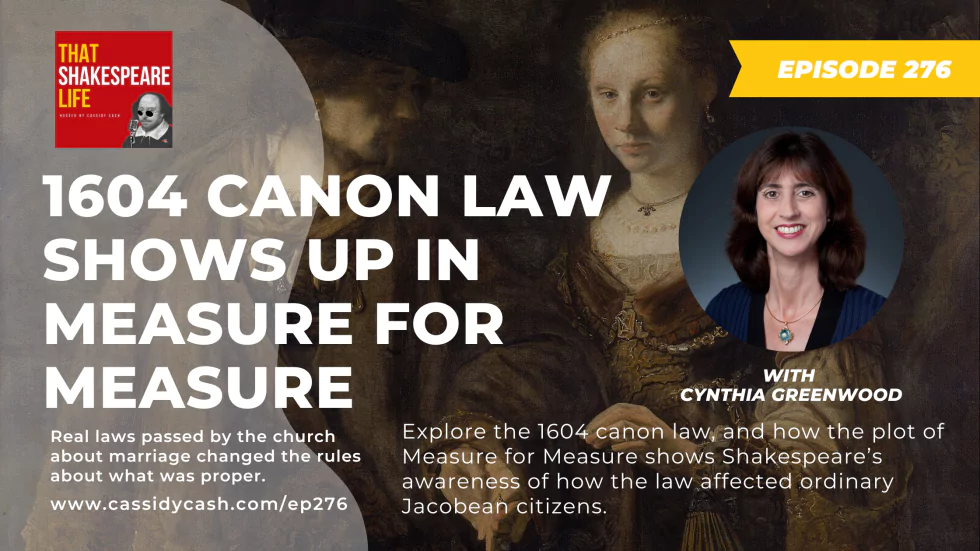Cynthia’s interview with Cassidy Cash is based on a close study of Measure for Measure, and the way in which Shakespeare’s audiences of 1604 found themselves in the crosshairs of the church courts if they entered into an informal marriage, which had been considered legal for centuries under English common law. In this episode Cynthia explores a revision to canon law in 1604 and how the plot of Measure for Measure suggests Shakespeare’s awareness of how the law affected ordinary Jacobean citizens.
That Shakespeare Life
Episode title: 17th-Century Canon Law Reflected in Measure for Measure

Access over 150 additional episodes in our back catalog on Patreon! Join today http://www.patreon.com/thatshakespearelife
As quoted on ‘That Shakespeare Life’ (Episode 276) at CassidyCash.com:
If you really want to know Shakespeare, you have to step inside his world
In Shakespeare’s play, Measure for Measure, there’s a fictional court case against Claudio for extra-marital misconduct. The play separately asks the audience to pass judgment on Angelo regarding a marriage pre-contract that was known as a “Spousal” during Shakespeare’s lifetime. In 1604, when Measure for Measure was first performed, these cases of immoral behavior were being tried in real life in what were known as “ecclesiastical courts,” or colloquially, as the “Bawdy Courts.” Many of the actual citizens that had been brought up on charges in these bawdy court cases were members of the audience being addressed by the play’s fictional court portrayal. It was in this same year that church courts started cracking down on engaged couples who were becoming secretly engaged or “bethrothed” to one another without witnesses or parental consent. Here today to tell us about the battle between civil and canon law that governed couples intending to get married, and the specific changes to to canon law that were issued in 1604, is our guest and theatrical historian, Cynthia Greenwood (Listen to the full episode, and see the complete show notes on CassidyCash.com).